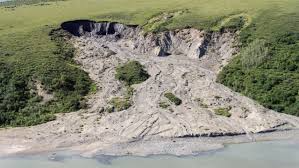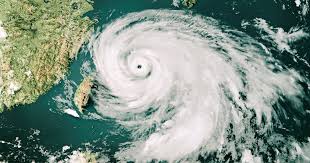
Global Coral Reef Recovery Shows Mixed Results Pockets of Hope in an Ocean of Concern
Coral reefs, the vibrant underwater ecosystems that support nearly a quarter of all marine life, are at a critical juncture. As global temperatures rise and oceans become increasingly acidic, scientists around the world are racing to track, preserve, and restore these delicate habitats. Recent studies reveal a complicated and often contradictory picture while some coral reefs are showing promising signs of resilience and regrowth, others continue to deteriorate under environmental stress. This dual reality underscores the urgent need for targeted conservation strategies, international cooperation, and long term climate action.
In certain regions such as the Western Pacific and parts of the Indian Ocean, natural recovery processes are beginning to take root. Coral reefs around the Philippines and the Maldives, for example, have shown surprising rebounds in coral cover since the devastating bleaching events of 2016 and 2020. Marine biologists attribute this localized recovery to a combination of factors, including cooler upwelling currents, genetic hardiness in native coral species, and improved protection from overfishing. In these zones, strict marine protected areas (MPAs) and community led monitoring programs have created a buffer against some of the worst human impacts.
On the flip side, reefs in the Caribbean, East Africa, and parts of the Great Barrier Reef are still under severe threat. Prolonged heatwaves in 2023 and early 2024 triggered the fourth mass global bleaching event in recorded history, affecting over 50 countries’ reef systems. In Australia, despite repeated restoration attempts, scientists reported widespread bleaching across both the northern and central sectors of the Great Barrier Reef, even in areas once considered more resilient. The combination of ocean heat, cyclonic damage, and sediment runoff continues to overwhelm natural regenerative cycles.
One of the core challenges scientists face is the inconsistency of resilience among reef systems. Not all corals respond the same way to stress. Some species, like the massive brain corals, can withstand prolonged warming, while others, like the branching staghorns, are more vulnerable. Moreover, reefs in deeper or more shaded environments often fare better than shallow, exposed reefs. This variability makes it difficult to design one size fits all restoration efforts. As a result, reef scientists are increasingly turning to localized adaptive management tailoring conservation strategies to the unique ecological and social conditions of each reef site.
Innovative restoration techniques are also reshaping the coral recovery landscape. Around the world, researchers are deploying artificial reef structures, coral nurseries, and even 3D printed reef blocks to aid coral settlement and regrowth. In Kenya and Indonesia, programs led by local communities and international NGOs are growing juvenile corals in underwater “gardens” and replanting them in degraded areas. In the Red Sea, which has shown remarkable resistance to bleaching, scientists are studying naturally heat tolerant corals with the hope of replicating their genetic traits elsewhere. These efforts, while promising, require consistent funding, monitoring, and community support to yield lasting impact.
Yet, the broader threat of climate change continues to loom large. Even the most robust local interventions may be undermined if global temperatures continue to climb. Scientists warn that if the planet warms by more than 1.5°C above pre industrial levels a threshold we are rapidly approaching over 90% of the world’s coral reefs could be lost by 2050. This potential collapse would devastate not only marine biodiversity but also the livelihoods of over 500 million people who depend on reefs for food, tourism, and coastal protection. Reefs generate billions of dollars annually, and their decline would pose both economic and humanitarian crises.
Another complicating factor in global reef recovery is pollution from agricultural runoff, untreated sewage, and plastic debris. Nutrient pollution in particular can lead to algal blooms that suffocate corals and block sunlight. In urbanized coastal areas, sedimentation from construction and logging continues to smother coral colonies. Despite the clear evidence linking pollution to reef degradation, enforcement of environmental regulations remains weak in many countries. Scientists emphasize that unless these land based threats are controlled, coral restoration efforts will remain a losing battle.
Nonetheless, there are signs of hope. Global awareness around coral reef conservation is growing, and international initiatives such as the Coral Reef Breakthrough campaign launched at COP28 aim to restore at least 125,000 square kilometers of reef by 2030. Countries like Costa Rica, Palau, and Seychelles are leading by example, investing heavily in reef conservation, blue economies, and community education. Even private companies are stepping in, funding reef restoration projects as part of sustainability and carbon offset initiatives. The growing sense of urgency is pushing innovation, collaboration, and accountability in ways not seen a decade ago.
In the end, the story of coral reefs in 2025 is one of mixed results neither a total collapse nor a full recovery. Reefs are fighting to survive in a world that changes faster than they can adapt. Local success stories offer critical lessons and hope, but they cannot substitute for systemic change. To truly turn the tide, the global community must pair conservation and science with aggressive climate policy, reduced emissions, and a deep commitment to protecting the planet’s most fragile ecosystems. The health of coral reefs, after all, is not just a marine issue it’s a mirror reflecting the health of our entire Earth system.
Related Post
Popular News
Subscribe To Our Newsletter
No spam, notifications only about new products, updates.















